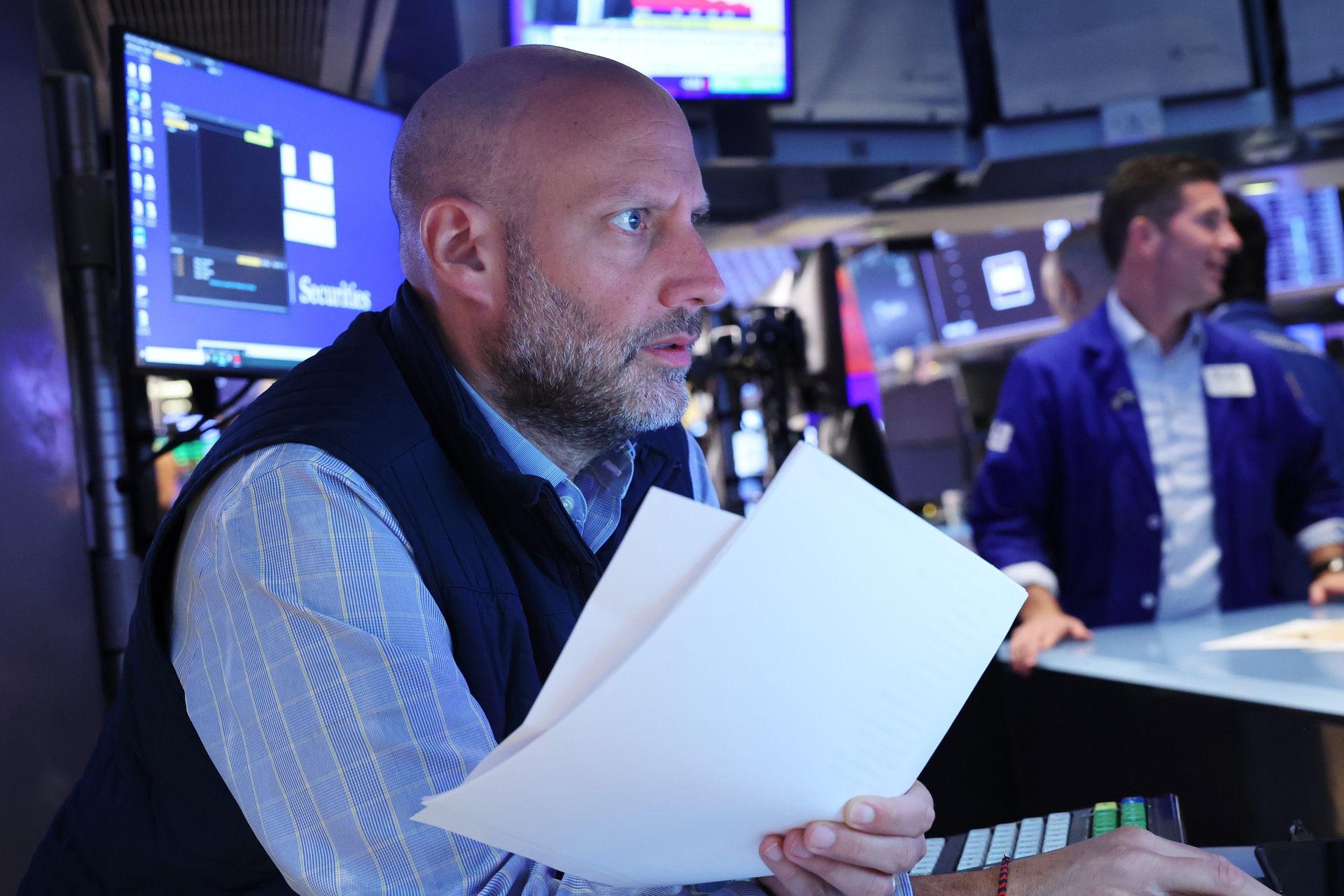🌍 Monday market madness

Good morning, Quartz readers!
Here’s what you need to know
The stock market “fear index” reached its highest point since the 2020 market crash. Yesterday’s global rout was driven by investor concerns over a slowing U.S. economy. Meanwhile, traders also grappled with technical issues with several major online trading platforms.
Nvidia’s stock nosedived after reports of a design flaw in its highly anticipated Blackwell AI chips. The snag could force the tech giant to push back deliveries by three months or longer.
Tropical Storm Debby disrupted travel in Florida and forced hundreds of flights to be canceled. About a fifth of scheduled departures out of Orlando, Tampa, and Miami International Airports were scrapped.
CrowdStrike clapped back on Delta’s cyber meltdown claims. The cybersecurity firm said in a letter that it offered Delta on-site help and argued that if the duo ended up in court, Delta would need to take some responsibility, too.
Eli Lilly’s Zepbound is available again, but the shortage isn’t resolved. The U.S. Food and Drug Administration said there’s still work remaining for other drugs, like Mounjaro, to be removed from the short supply lists, including addressing backorders.
Nearly half of Fortune 500 companies are in just five states
Fortune 500 companies are huge players in the U.S. economy (it’s partially why when they tank on the stock market, everyone starts getting jittery).
They make roughly $18.8 trillion in revenue, collectively represent $43 trillion in market value, and employ an estimated 31 million people worldwide.
But even so, that wealth and job creation isn’t spread evenly across the U.S. Quartz’s Rocio Fabbro has more on which five states account for 220 of these companies.
What Google’s massive antitrust loss means for Big Tech
Google was handed down a ruling yesterday that said it had been running a monopoly on search and advertising markets, using exclusive deals to jack up ad prices without any pushback for over a decade.
With almost 90% of search traffic in 2020, Google’s dominance has led to big revenue and profits, and with it, broken U.S. antitrust laws, at least in the eyes of the U.S. Department of Justice. Quartz’s Laura Bratton has more on why the ruling is a pivotal moment for the tech industry.
More from Quartz
👀 Snoop Dog is giving the 2024 Paris Olympics a big viewership boost
🧠 Elon Musk’s Neuralink has implanted a brain chip in a second patient
🍫 Snickers owner Mars may soon own Pringles owner Kellanova
💲 AI chipmaker Groq secures $640 million in fresh funding
🦾 A major hospitality union slams Trump’s tip proposal as ‘play’ for votes
💡 Roche exec sees an opportunity for new weight loss drugs as global obesity rates soar
Surprising discoveries
Mountain bikes worthy of an Olympic win are really pricey. The high-end bikes range anywhere from $12,500 to $17,000.
U.S. sprinter Noah Lyles won the men’s 100 meters by 0.005 seconds. That’s one of the smallest margins in the event’s history.
Chocolate muffins are getting an Olympic boost. Norwegian swimmer Henrik Christiansen set off a craze for the sweet treats after he shared his muffin obsession on TikTok.
A big ol’ iceberg is spinning in circles just north of Antarctica. Scientists say it’s stuck on a giant rotating water current instead of moving with the usual ocean tides.
Warren Buffett’s Berkshire Hathaway owns more U.S. Treasury bills than the Federal Reserve. Berkshire Hathaway has invested $234.6 billion in government securities.
Did you know we have two premium weekend emails, too? One gives you analysis on the week’s news, and one provides the best reads from Quartz and elsewhere to get your week started right. Become a member or give membership as a gift!
Our best wishes on a safe start to the day. Send any news, comments, mountain bikes, and big ol’ icebergs to [email protected]. Today’s Daily Brief was brought to you by Francisco Velasquez and Morgan Haefner.